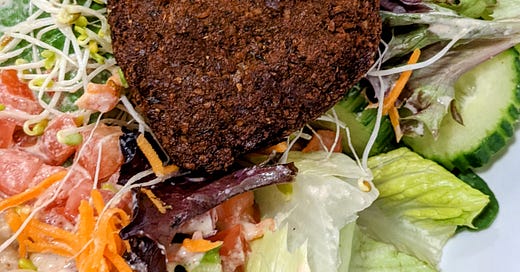Time is meaningless. Today is Blursday. It’s still March 2020.
We blame the pandemic, but time has always felt slippery to me. For example, I lived in Nacogdoches, Texas for most of my twenties, years that were incredibly formative and meaningful. And yet, a mere decade later, I have maybe a handful of clear memories from that time. The same goes for the years I spent in my MFA program. And let’s not even talk about undergrad. Mostly because I can’t—I barely remember it.
A few years ago, I listened to a podcast about a woman who couldn’t forget anything. (Ironically, I can’t remember which podcast it was.) She had a rare condition called HSAM, or hyperthymestic syndrome, in which a person remembers nearly every event of their life with stunning precision. If you read that and shuddered, you understand why this condition is not exactly a blessing. We say dumb things. We make mistakes. We hurt loved ones. We feel the weight of regret. Forgetting is often the very thing that allows us to move forward. Not every memory is one you want to preserve for all time!
I’ve been thinking lately about the concept of memory because I’m almost done revising my novel for the fifth and hopefully final time. (For now, anyway.) When I was workshopping the book with my writing group, one reader asked about social media, and whether referencing Instagram or Facebook would eventually make the novel feel dated and out of place.
I understood her concern. When I was younger, I dreamt of writing a timeless classic, the kind of story that would stand the test of time and continue to resonate in ten, fifty, one hundred years.
Now, I don’t feel that impulse. Maybe it’s the fact that I work in communications, and thus spend a large part of my day thinking about audience. Who is receiving this message? What do I want to say? What do they need to hear? How can I best deliver this so it makes the right impact?
I kept returning to those questions as I worked on a novel. As a result, it’s the first book I’ve written that takes place during a very specific time, the first story in which external forces (politics, capitalism, climate disaster) influence the plot. My characters use social media because it’s September of 2018, and pretending Instagram doesn’t exist or that people don’t communicate via text would make the book feel out of place right now.
I don’t know what people one hundred years from now will be interested in, what kind of books they’ll be hungry for. And it doesn’t matter, really. In one hundred years, there will be new stories to tell and new people to write them. My job is to engage with today’s world, to write for and to the people who live here, with me.
Which brings me back to what we remember and how long things last. Not much and not long, so make sure you write it down.
Snack Break
Earlier this week, my husband got some Very Good News. We celebrated with dinner at one of our favorite vegan restaurants, Sealevel City. I ordered the Mediterranean Salad, and when it arrived, I discovered one of the falafel balls had been carefully shaped into a heart. Just one of the many reasons Sealevel has mine! 💚

Relatable Reads
💌 Why Some Famous Novelists Are All About Substack
“What if you could hear from your favorite novelists on a regular schedule—essentially, enter the slipstream of their minds on demand? Enter Substack… But as these novelists light the way for what a safe, congenial online community can look like, they raise questions about their beleaguered platform, and about what it will take to build the digital world we all want to live in.”
For obvious reasons, I really enjoyed this look at how authors are using Substack. The discourse is alive and well!
🪴 The Fiddle Leaf Fig Is Dead*
“People’s relationships with their plants deepened during the pandemic, industry experts say, and once trendy varieties started to seem dusty. Former “It” plants like the pilea peperomioides, with its coin-shaped leaves, and the fiddle leaf fig, a fixture of home design catalogs, have been bumped out of vogue.”
My pilea and both my fiddles are THRIVING, thank you very much, but I nevertheless enjoyed this article and the accompanying photos.
🪜 The 25 Micro-Habits of High-Impact Managers
“To stay nimble, high-impact managers must strike the balance between excelling at the basics and juggling new ideas that make a splash.”
I recently moved into a management role at work, and as a first-time manager, these tips were particularly great!
📚 Building an Antilibrary: The Power of Unread Books
“The goal of an antilibrary is not to collect books you have read so you can proudly display them on your shelf; instead, it is to curate a highly personal collection of resources around themes you are curious about.” !!!
*NYT gift link—no subscription needed, and clicking won’t count toward your free articles!
Ask Me Anything!
Reminder: my very occasional advice column, Can You Relate?, is open for business! And by business, I mean questions. Read past issues here, and submit your burning questions here.
Coffee Club
Big thanks to Katie H. and Kelton W. for the coffee break last week! Your timing was impeccable.
Want to treat me to a ☕️ and support So Relatable? 💛 💃 🙌
Venmo: @Christine-Hennessey or PayPal Me.
Can’t afford a contribution? You can also click the ♡ below, forward this to a friend, or share the link on social media. Every little bit helps!




Just popping in to say Hello. I still read your newsletter (sometimes I let them build in my email and read a few at once). I appreciate these relatable insights and realizing that I'm not alone in some of these ponderations! Hope y'all are well!
I just read We Wives. What a great story!